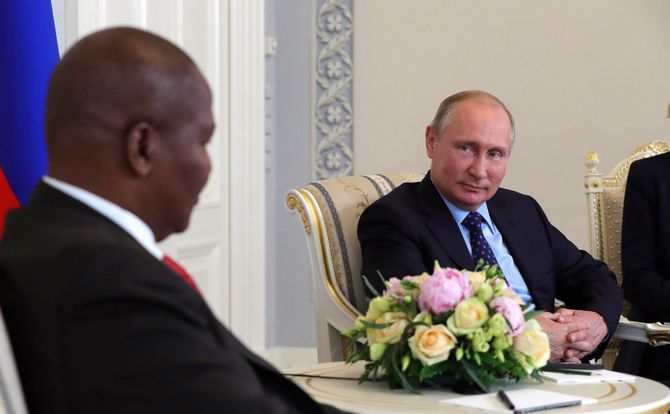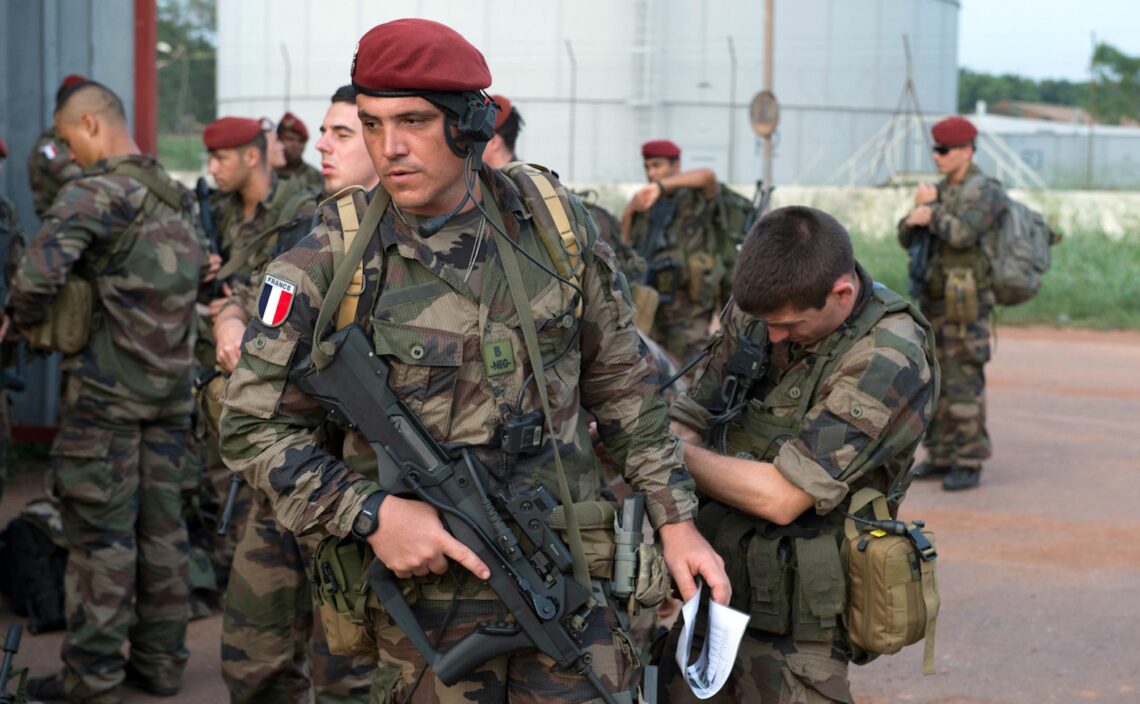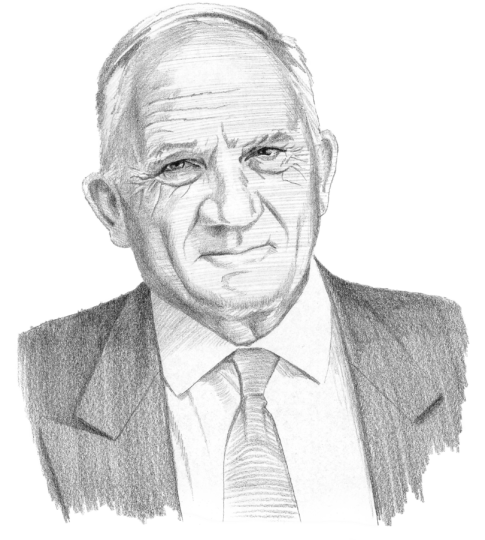Russia in Africa: the ‘covert action’ strategy
While China has received much attention for its diplomatic and economic efforts in Africa, Russia has been quietly seeking a foothold in the Central African Republic. Years of a violent civil war have set the stage for Russia’s entrance into the country, where it is now plying security expertise and pursuing investments in the mining sector.

In a nutshell
- Russia is seeking influence in the Central African Republic, after years of absence on the continent
- Years of civil war, and the vacuum left behind by recent Western interventions, set the stage for Russia’s arrival
- Moscow has sent arms and private security personnel, while Russian investors pursue opportunities in the mining sector
- Lacking the heft of China’s Africa policy but avoiding the moralism of Western powers, Russia’s low-key strategy may well pay off
For about 15 years, China’s strategy on the African continent has received increasing scrutiny from specialists, diplomats and Western political pundits. This interest was clearly visible last September in Beijing, at the third summit of the Forum on China-Africa Cooperation (FOCAC).
But China is not the only international player to set its sights on the continent and challenge an increasingly fragile Western leadership that is rapidly losing its appeal. The interests of countries such as Turkey, India and Brazil have all been tied to Africa. Now, having been absent from the African scene since the fall of the USSR, Russia seems to be looking for a foothold in the continent. Using the “covert operations” strategy tested in Ukraine, it is taking advantage of the chaos that has reigned in the Central African Republic (CAR) to make a discreet entry into the country. Military instructors, private security companies, an indifference to political regimes and investments in sectors like mining – these are the pieces of the new Russian puzzle in Africa.
Central African chaos
A series of events over the past 15 years have set the stage for Russia to set up shop in the CAR. Between 2004 and 2007, the country was torn apart by the violent civil war that followed the coup that put former President Francois Bozize in power. After several years of tentative peace, the Seleka rebel coalition – primarily Muslim northern militiamen, supported by Sudan – again took up arms in 2012. On March 24, 2013, they took over the capital city of Bangui, while Mr. Bozize fled. Michel Djotodia then proclaimed himself president of the Central African Republic. However, the countless atrocities committed by the Seleka led to the deterioration of security and the formation of primarily Christian self-defense militia known as the “anti-balaka.” Some observers described the situation as “pre-genocidal.”
On December 5, 2013, a UN resolution authorized France to deploy armed troops for humanitarian reasons only, in an intervention known as Operation Sangaris. The French had a vague mandate, little firepower and limited control over the territory (in 2010, France had made the strategic error of abandoning its base in the northern city of Birao, a linchpin connecting Chad, Sudan and the CAR).
Russia is using the “covert operations” strategy tested in Ukraine to make a discreet entry into the country.
Still, the 1,600 French troops succeeded in restoring a semblance of order, though only within Bangui and its vicinity. The greater part of the country remained beyond the control of the French and Central African authorities. In October 2016, French President Francois Hollande terminated Operation Sangaris virtually without notice, leaving the territory to the disparate and frequently incompetent MINUSCA (United Nations Multidimensional Integrated Stabilization Mission in the Central African Republic) forces. The situation came to a deadlock. It was at this point that the Russians made their quiet entrance.
Russia’s ‘covert action’ and implied strategy
Russia began by following the “covert action” playbook that predominates in its military circles and that brought success in Crimea. In January 2018, 200 private “technicians” were dispatched to the CAR to train Central African soldiers in the use of weapons provided by Moscow, including handguns, assault rifles, machine guns, rocket launchers and antiaircraft weapons. The personal guard of President Faustin-Archange Touadera, elected in 2016, is itself supported by 40 Russian “technicians.”
Since May 2018, the number of Russians in the CAR has been estimated at 1,200, most of whom are employed by private companies – often owned by oligarchs with close ties to the Kremlin – and under the command of recently retired officers of the Russian army. In August 2018, the Central African Republic signed a military cooperation agreement with Russia, formalizing further support.
How can Russia’s interest in the CAR in particular, and in Africa in general, be explained? First of all, the continent is and will continue to be one of the main theaters of global power politics. Though it remains a small piece in the grand scheme, Moscow could not allow itself to continue without an Africa policy, especially when the barrier to entry is so low.

Furthermore, the choice of the CAR is relevant geographically, as it is located between the Democratic Republic of Congo, Chad and Sudan. The Khartoum regime, in particular, has been a long-term ally of Moscow. The area contains several flash points, but that is no drawback. Should Moscow decide at some point to intervene in a regional conflict, it would have a centrally-located bridgehead.
The third reason for Russia’s interest in the CAR is business. The mining sector (oil, diamonds, platinum, mercury, etc.) is especially attractive to Russian investors, who are just as comfortable negotiating with the authorities in Bangui as they are with the defunct Seleka in the north. Contrary to the choice made in colonial times by France, which sought to end the CAR’s isolation by opening it up to the West, Russia appears to want a reorientation toward the East, especially to connect with the Sudanese railroad that grants access to the Red Sea in Port Sudan.
Incremental strategy
After gaining its initial foothold in the CAR, Moscow signed a “technical assistance” agreement with Burkina Faso in August 2018, which includes support for its armed forces, intelligence training and, ultimately, supplies of military equipment. This agreement confirms that Russia has a genuine interest in the area that goes beyond mere opportunism. To understand it, we must recognize how modest this action is at this stage.
To start with, Russia’s operations in the CAR come after two previous failures. In the Ivory Coast, companies like Rostec, Lukoil and Gazprom (via its subsidiary Global Resources) threw in the towel after a lengthy courtship and several years of presence. Then, Djibouti – a strategic East African port at the confluence of the Red Sea and the Indian Ocean – refused to sign a partnership agreement with Russia. The Russian economic presence is still very minor compared to that of the Chinese; its bilateral trade with Africa is 40 times smaller than China’s.
Russia can present itself as the successor to the Soviet Union: a partner that does not lecture anyone and that is ready to talk with all willing parties.
Even so, Moscow has some compelling selling points. To start, it plays on the nationalist sentiment that is in full swing in Africa. Russia can easily take advantage of African resentment toward the Western, former colonial powers and the United States. It can present itself as the successor to the anti-colonial Soviet Union – a partner that does not lecture anyone and that is ready to talk with all willing parties. Russia is also offering its security know-how to countries dealing with terrorism. The Kremlin knows full well that this issue has become, with good reason, a priority for many countries, and has become skilled in marketing its talents via private companies.
Lacking China’s billions but steering clear of Western moralism, Russia is making a well-calculated comeback on the African continent. While keeping the stakes low and limiting risks at every turn, it is promoting a valuable competence in security matters. It may well be that the very modesty of these measures will end up ensuring their success.








